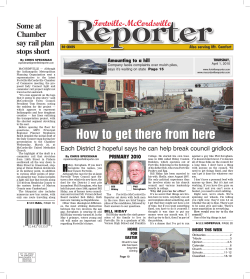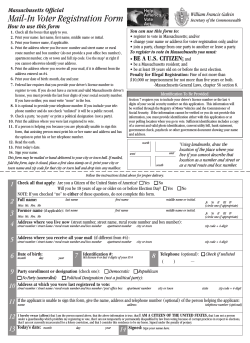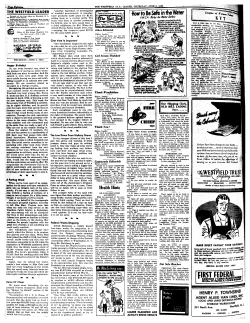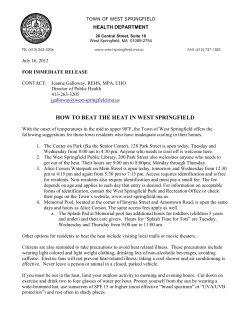
Teacher’s Pet Publications
Teacher’s Pet Publications a unique educational resource company since 1989 Dear Prospective Customer: The pages which follow are a few sample pages taken from the LitPlan TeacherPack™ title you have chosen to view. They include: • Table of Contents • Introduction to the LitPlan Teacher Pack™ • first page of the Study Questions • first page of the Study Question Answer Key • first page of the Multiple Choice Quiz Section • first Vocabulary Worksheet • first few pages of the Daily Lessons • a Writing Assignment • first page of the Extra Discussion Questions • first page of the Unit Test Section If you wish to see a sample of an entire LitPlan Teacher Pack,™ go to the link on our home page to view the entire Raisin in the Sun LitPlan Teacher Pack.™ Since all of the Teacher Packs™ are in the same format, this will give you a good idea of what to expect in the full document. If you have any questions or comments, please do not hesitate to contact us; we pride ourselves on our excellent customer service, and we love to hear from teachers. Thank you for taking the time to visit our web site and look at our products! Sincerely yours, Jason Scott, CEO Teacher’s Pet Publications Toll-Free: 800-932-4593 Fax: 888-718-9333 TEACHER’S PET PUBLICATIONS LITPLAN TEACHER PACK™ for Our Town based on the play by Thornton Wilder Written by Mary B. Collins © 1996 Teacher’s Pet Publications All Rights Reserved ISBN 978-1-58337-311-8 Item No. 304743 TABLE OF CONTENTS - Our Town Introduction 5 Unit Objectives 8 Reading Assignment Sheet 9 Unit Outline 10 Study Questions (Short Answer) 13 Quiz/Study Questions (Multiple Choice) 19 Pre-reading Vocabulary Worksheets 31 Lesson One (Introductory Lesson) 41 Nonfiction Assignment Sheet 43 Oral Reading Evaluation Form 53 Writing Assignment 1 51 Writing Assignment 2 54 Writing Assignment 3 63 Writing Evaluation Form 62 Vocabulary Review Activities 59 Extra Writing Assignments/Discussion ?s 57 Unit Review Activities 66 Unit Tests 69 Unit Resource Materials 97 Vocabulary Resource Materials 111 A FEW NOTES ABOUT THE AUTHOR THORNTON WILDER Thornton Wilder was born in Madison, Wisconsin on April 18, 1897. Because his father was appointed as American Consul General at Hong Kong and Shanghai, Mr. Wilder received his early education abroad, at a missionary school in China. Upon their return to the United States, the Wilders took up residence in California, where young Thornton Wilder attended high school at Berkeley. Mr. Wilder entered Oberlin College in 1915 and transferred to Yale in 1917. He left college all together in 1918 to enlist in the Coast Artillery Corps but returned shortly and received his B.A. degree in 1920. Some of his best known works are The Bridge of San Luis Rey (1927) which won a Pulitzer Prize, Our Town (1935) which won a Pulitzer Prize, The Skin of Our Teeth (1942) which also won a Pulitzer Prize, The Ides of March (1948), and The Matchmaker (1954) which was made into a motion picture and was used as the source for the Broadway musical Hello, Dolly. 4 INTRODUCTION This unit has been designed to develop students' reading, writing, thinking, and language skills through exercises and activities related to Our Town by Thornton Wilder. It includes seventeen lessons, supported by extra resource materials. The introductory lesson introduces students to one main theme of the play with a guest speaker who will speak with students about their own towns--the history, interesting people, important buildings, etc. Following the introductory activity, students are given a transition to explain how the activity relates to the play they are about to read. Following the transition, students are given the materials they will be using during the unit. At the end of the lesson, students begin the pre-reading work for the first reading assignment. The reading assignments are approximately thirty pages each; some are a little shorter while others are a little longer. Students have approximately 15 minutes of pre-reading work to do prior to each reading assignment. This pre-reading work involves reviewing the study questions for the assignment and doing some vocabulary work for 8 to 10 vocabulary words they will encounter in their reading. The study guide questions are fact-based questions; students can find the answers to these questions right in the text. These questions come in two formats: short answer or multiple choice. The best use of these materials is probably to use the short answer version of the questions as study guides for students (since answers will be more complete), and to use the multiple choice version for occasional quizzes. If your school has the appropriate equipment, it might be a good idea to make transparencies of your answer keys for the overhead projector. The vocabulary work is intended to enrich students' vocabularies as well as to aid in the students' understanding of the play. Prior to each reading assignment, students will complete a two-part worksheet for approximately 8 to 10 vocabulary words in the upcoming reading assignment. Part I focuses on students' use of general knowledge and contextual clues by giving the sentence in which the word appears in the text. Students are then to write down what they think the words mean based on the words' usage. Part II nails down the definitions of the words by giving students dictionary definitions of the words and having students match the words to the correct definitions based on the words' contextual usage. Students should then have a good understanding of the words when they meet them in the text. After each reading assignment, students will go back and formulate answers for the study guide questions. Discussion of these questions serves as a review of the most important events and ideas presented in the reading assignments. 5 After students complete reading the work, a lesson is devoted to the extra discussion questions/writing assignments. These questions focus on interpretation, critical analysis and personal response, employing a variety of thinking skills and adding to the students' understanding of the play. Following the discussion lesson, there is a vocabulary review lesson which pulls together all of the fragmented vocabulary lists for the reading assignments and gives students a review of all of the words they have studied. The group activity which follows the discussion questions has students working in small groups to complete a group project. Each group is responsible for making one section for a class booklet about your town. There are three writing assignments in this unit, each with the purpose of informing, persuading, or having students express personal opinions. The first assignment is to inform: students write about the information they have found for the class booklet project. The second assignment is to express personal opinions: students give their opinions about what it is like to be dead. That sounds a bit morbid, but since Mr. Wilder gives his opinions throughout the play, students will be thinking about the topic in relation to the themes of the play. The third assignment is to persuade. Students persuade the teacher that life today is better than it was 100 years ago, worse than it was 100 years ago, or neither better or worse--just different from how it was 100 years ago. In addition, there is a nonfiction reading assignment. Students are required to read a piece of nonfiction related in some way to Our Town. After reading their nonfiction pieces, students will fill out a worksheet on which they answer questions regarding facts, interpretation, criticism, and personal opinions. During one class period, students make oral presentations about the nonfiction pieces they have read. This not only exposes all students to a wealth of information, it also gives students the opportunity to practice public speaking. The review lesson pulls together all of the aspects of the unit. The teacher is given four or five choices of activities or games to use which all serve the same basic function of reviewing all of the information presented in the unit. The unit test comes in two formats: multiple choice or short answer. As a convenience, two different tests for each format have been included. There is also an advanced short answer unit test for more advanced students. 6 There are additional support materials included with this unit. The extra activities section includes suggestions for an in-class library, crossword and word search puzzles related to the play, and extra vocabulary worksheets. There is a list of bulletin board ideas which gives the teacher suggestions for bulletin boards to go along with this unit. In addition, there is a list of extra class activities the teacher could choose from to enhance the unit or as a substitution for an exercise the teacher might feel is inappropriate for his/her class. Answer keys are located directly after the reproducible student materials throughout the unit. The student materials may be reproduced for use in the teacher's classroom without infringement of copyrights. No other portion of this unit may be reproduced without the written consent of Teacher's Pet Publications, Inc. 7 UNIT OBJECTIVES - Our Town 1. Through reading Thornton Wilder's Our Town, students will gain a better understanding of the importance of appreciating ordinary events in our daily lives. 2. Students will demonstrate their understanding of the text on four levels: factual, interpretive, critical and personal. 3. Students will discuss the life/death theme in the play. 4. Students will be exposed to a different era of American life. 5. Students will gather information and create a booklet telling all about their town. 6. Students will be given the opportunity to practice reading aloud and silently to improve their skills in each area. 7. Students will answer questions to demonstrate their knowledge and understanding of the main events and characters in Our Town as they relate to the author's theme development. 8. Students will enrich their vocabularies and improve their understanding of the play through the vocabulary lessons prepared for use in conjunction with the play. 9. The writing assignments in this unit are geared to several purposes: a. To have students demonstrate their abilities to inform, to persuade, or to express their own personal ideas Note: Students will demonstrate ability to write effectively to inform by developing and organizing facts to convey information. Students will demonstrate the ability to write effectively to persuade by selecting and organizing relevant information, establishing an argumentative purpose, and by designing an appropriate strategy for an identified audience. Students will demonstrate the ability to write effectively to express personal ideas by selecting a form and its appropriate elements. b. To check the students' reading comprehension c. To make students think about the ideas presented by the play d. To encourage logical thinking e. To provide an opportunity to practice good grammar and improve students' use of the English language. 11. Students will read aloud, report, and participate in large and small group discussions to improve their public speaking and personal interaction skills. 8 READING ASSIGNMENT SHEET - Our Town Date Assigned Assignment Beginning of Act One to Mr. Webb's exit after answering Lady In A Box Mr. Webb's exit to the end of Act One Act Two Act Three 9 Completion Date UNIT OUTLINE - Our Town 1 Guest Speaker Introduction 2 Project Assignment Parts Assignments 6 Study ?s Act One Writing Assignment #2 PV Act Two Library Project Work PV RA 1 7 Read RA 3 11 12 Vocabulary Project Work 16 Review 3 4 Read RA 1 8 Study ?s Act Two Practice Parts PV Act Four 13 Nonfiction Reports 9 Read RA 4 14 Writing Assignment #3 5 Read RA 2 10 Study ?s Act Three Extra ?s 15 Project Conclusion 17 Test Key: P = Preview Study Questions V = Prereading Vocabulary Worksheets R = Read RA = Reading Assignment 10 LESSON ONE Objectives 1. To introduce the Our Town unit. 2. To distribute books and other related materials NOTE: Prior to this lesson, you need to contact a guest speaker and make the necessary arrangements. Call your local newspaper office and try to arrange for the most experienced reporter of news and events in your area to come talk with your class about your town. Most newspaper offices have someone who has been reporting about the local area for decades. If a reporter isn't available, or if you prefer, you could find someone or several people who have lived in your area for many years to come talk with your students about things that have happened in your town and changes that have been made over the years. If there are no willing or able reporters and no senior citizens who want to come to your class, try getting someone from your local historical society. It might be a good idea, too, to have each student write down three questions to ask your guest speaker in case your speaker doesn't come with a presentation planned. Sometimes it is good to have some planned questions to start things off, to get a discussion going or to help your speaker feel comfortable and get him/her on track. Activity #1 Introduce your guest speaker. If your speaker has not come with a presentation planned, have students ask their questions to get a discussion going. Perhaps your speaker could bring some pictures of the way town "used to look." Spend most of your class time with the guest speaker talking about the way town used to be, things that have happened in your town through the years, general "I remember when . . ." kinds of things. If your students and speaker are enjoying each other, let the discussion go all period. Activity #2 If you don't have time for this activity, do it in Lesson Two. Distribute the materials students will use in this unit. Explain in detail how students are to use these materials. Study Guides Students should read the study guide questions for each reading assignment prior to beginning the reading assignment to get a feeling for what events and ideas are important in the section they are about to read. After reading the section, students will (as a class or individually) answer the questions to review the important events and ideas from that section of the play. Students should keep the study guides as study materials for the unit test. 41 WRITING ASSIGNMENT #1 - Our Town PROMPT You have to do a certain amount of research about your topic for the Project Assignment. Also, your group has to create a section of the booklet the class is making. One way for you to create your section of the booklet is to have each person in your group summarize his/her research. Then, when you go to put your section of the booklet together, you can just use this series of summaries. For example, in the History Group Student 1 writes about the founding date to FD+25. She/he can use the dates for the heading of her/his summary, and write a summary of what happened in those years. That would be followed by the summary from Student 2 who has the years following Student 1, and so on. This same principle will work for all of the groups. Important People group members should write a summary for each of the important people they research, and simply put the person's name as the heading for each composition. In the Things To Do group, students should head their compositions with the category (museums, special events, amusement parks, etc.). In the Landmarks group, students should head their compositions with the name of the landmark about which they are reporting. Get the idea? That way, each group member contributes to the writing of the section being contributed by the group. Your assignment, then, is to write a summary (or a series of summaries) about the topic(s) you are researching for your group. PREWRITING The Project Assignment pages give you a lot of good information about how to get started and do the research needed before you can actually begin writing your composition. Review the information there. DRAFTING Put a heading (title) at the top of (each of) your composition(s). Write approximately one to three paragraphs telling what you found in your research about that topic. If you were assigned three topics to research, you will have three compositions that are each one to three paragraphs long. If you were assigned Mexican food restaurants, for example, you should write one to three paragraphs about each of the Mexican food restaurants in your area. Each restaurant will have it's own heading. PROMPT When you finish the rough draft of your paper, ask a student who sits near you to read it. After reading your rough draft, he/she should tell you what he/she liked best about your work, which parts were difficult to understand, and ways in which your work could be improved. Reread your paper considering your critic's comments, and make the corrections you think are necessary. Do a final proofreading of your paper double-checking your grammar, spelling, organization, and the clarity of your ideas. 51
© Copyright 2025















